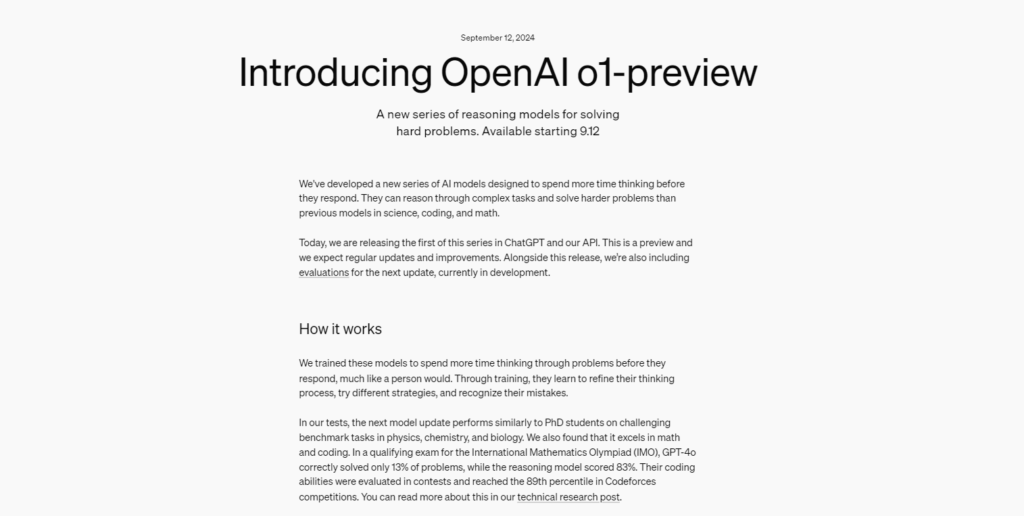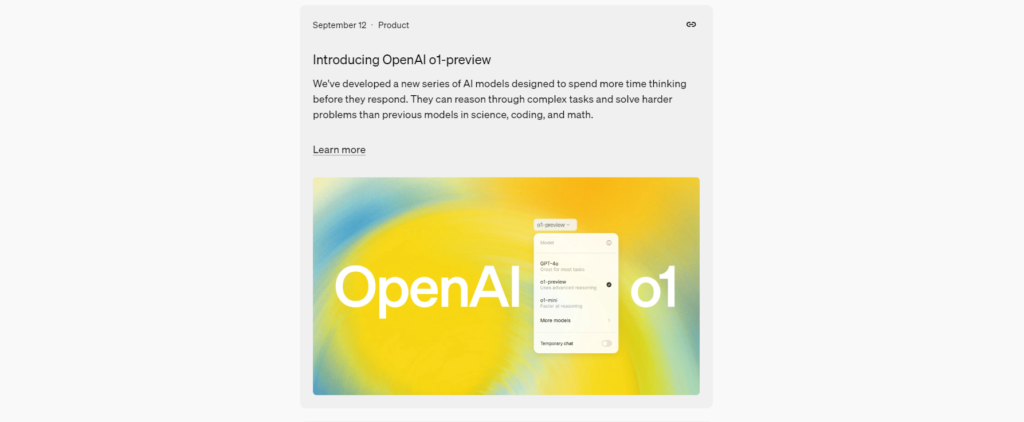OpenAI has introduced a new AI model, OpenAI o1, which the company claims can reason and solve complex problems more effectively than previous versions. The model, launched on Thursday, is the first in a new series and is designed to tackle advanced challenges in science, coding, and mathematics. According to OpenAI, it will gradually become available to ChatGPT users, with regular updates planned.

In a statement, OpenAI said the new model had been trained to think through problems more deeply before responding, mimicking human-like reasoning. “Through training, they learn to refine their thinking process, try different strategies, and recognize their mistakes,” the company explained.
The AI model has been showcased as a tool for healthcare researchers and physicists, with capabilities like annotating cell sequencing data and generating complex mathematical formulas for fields such as quantum optics.

Noam Brown, a research scientist at OpenAI, emphasized the long-term potential of the technology. “OpenAI’s o1 thinks for seconds, but we aim for future versions to think for hours, days, even weeks. Inference costs will be higher, but what cost would you pay for a new cancer drug? For breakthrough batteries?” Brown wrote on social media platform X.
The release of the new model comes as AI’s increasing energy demands are set to be a key topic in discussions between senior White House officials and top US tech executives. OpenAI CEO Sam Altman, Google executive Ruth Porat, and Anthropic CEO Dario Amodei were among those expected to attend the meeting.

While OpenAI o1 currently lacks certain features that make ChatGPT useful, such as the ability to browse the web or upload files and images, the company described it as a significant advancement in handling complex reasoning tasks. In internal tests, the model performed at a similar level to PhD students on challenging physics, chemistry, and biology benchmarks, and successfully solved 83% of problems in a qualifying exam for the International Mathematics Olympiad.
Despite its promising capabilities, the energy demands of advanced AI systems like OpenAI o1 continue to raise concerns about their environmental impact, including their potential contribution to global warming.


